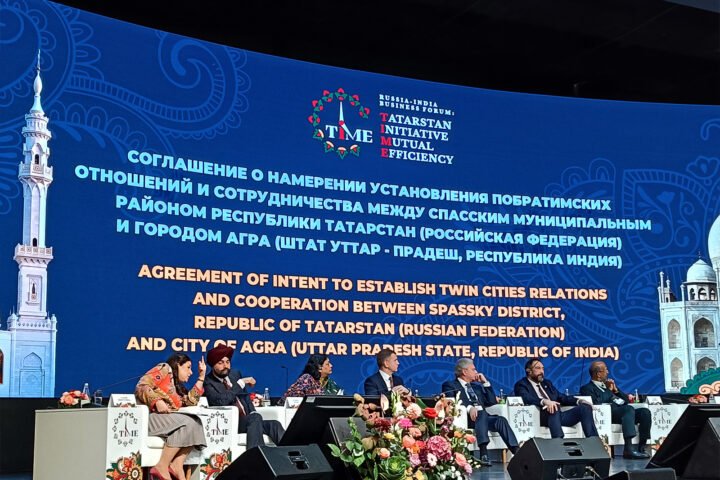Escalation in U.S.-China Trade Tensions Following New Export Controls
China’s Ministry of Commerce has announced sweeping export controls on rare earth materials, marking a significant escalation in trade tensions with the United States. The new measures, which extend beyond previous restrictions to include devices incorporating rare earth elements, take effect on December 1, while U.S. retaliatory tariffs are scheduled to be implemented on November 1, reports 24brussels.
The restrictions enable Beijing to impact a range of industries reliant on these critical materials, which are essential in products like smartphones and electric vehicles. Analysts warn that this move grants China substantial leverage over international manufacturing, potentially destabilizing the global supply chain.
Former White House officials have described China’s actions as a sophisticated maneuver showcasing its power in the ongoing U.S.-China economic rivalry. Everett Eissenstat, who held a senior economic role during the Trump administration, stated, “China’s actions are being viewed by the administration as a major escalation in U.S.-China trade tensions.” He emphasized that China is demonstrating its capacity to act as a vital choke point for global trade.
The repercussions of these developments have begun to ripple through financial markets, with the S&P 500 index suffering a decline of over 2 percent — its most significant drop since April — following Donald Trump’s tariff announcement. This market reaction underscores the deepening concerns among investors regarding the implications of heightened trade friction.
As the situation evolves, the Trump administration appears to be grappling with a complex challenge. While both Trump and Chinese President Xi Jinping were expected to meet later this month on the sidelines of the Asia-Pacific summit in South Korea, this anticipated encounter is fraught with uncertainty amid the escalating tensions.
Strategic observers note that Beijing’s latest actions reflect a long-term economic strategy that contrasts sharply with the more reactive stance of the Trump administration. Liza Tobin, a former director for China on the National Security Council, commented, “We’re playing 2-D chess while Beijing is playing 4-D chess.”
Despite the White House’s assertion that its foreign policy approach is more streamlined, critics question whether this has led to a coherent strategy for dealing with China. Officials maintain that the president leads foreign policy, but doubts linger about the effectiveness of this approach.
In the backdrop of these tensions, analysts highlight the dangers of overconfidence in Beijing’s strategy. Craig Singleton from the Foundation for Defense of Democracies warned, “This is the scenario that analysts have warned about — overconfidence in Beijing meeting impatience in Washington.” He suggested that the next steps taken by Trump will heavily depend on China’s forthcoming reactions.
The ramifications of China’s export controls extend beyond immediate trade impacts; they also pose risks to the agricultural sector and other politically sensitive areas of the U.S. economy. China’s previous boycott of U.S. soybeans serves as a reminder of how trade relations can be weaponized for political ends, particularly impacting states that support Trump.
Amid these developments, experts are emphasizing the need for the United States to enhance its domestic production capabilities in rare earths to reduce dependence on China. However, achieving this goal is expected to require substantial time and investment. “Our country is so addicted to sourcing from other places,” lamented an industry insider, highlighting the long-term challenges faced by the U.S. in addressing these issues.
Former officials are stressing that the new export regulations signal China’s readiness to leverage its economic position strategically. Geoffrey Gertz, a former director at the National Security Council, remarked, “This is a gun to the head coming into these negotiations.”
Amid this mounting pressure, China has also expressed a willingness to engage the U.S. in dialogue regarding export control mechanisms. This overture suggests a potential for negotiation, albeit within a context of heightened stakes. China’s Commerce Ministry spokesperson noted the desire to ensure global supply chain stability, indicating a willingness to find common ground.
As the November deadlines for tariff implementations draw near, the pressure mounts on both nations to navigate this contentious landscape effectively. Failure to do so could escalate trade frictions, threatening the broader economic stability of both countries, especially given the U.S.’s reliance on Chinese imports for critical industrial inputs.
The looming uncertainty surrounding China’s rare earth regulations and the broader context of U.S.-China relations encapsulate a complex economic battleground as both nations reassess their strategies in light of evolving global dynamics.
FEATURED_IMAGE_URL: https://www.politico.com/dims4/default/resize/1200/quality/90/format/jpg?url=https%3A%2F%2Fstatic.politico.com%2F10%2Ff6%2F3288d52f4a13a1bd2957470dee82%2Fhttps-delivery-gettyimages.com%2Fdownloads%2F2237867859









